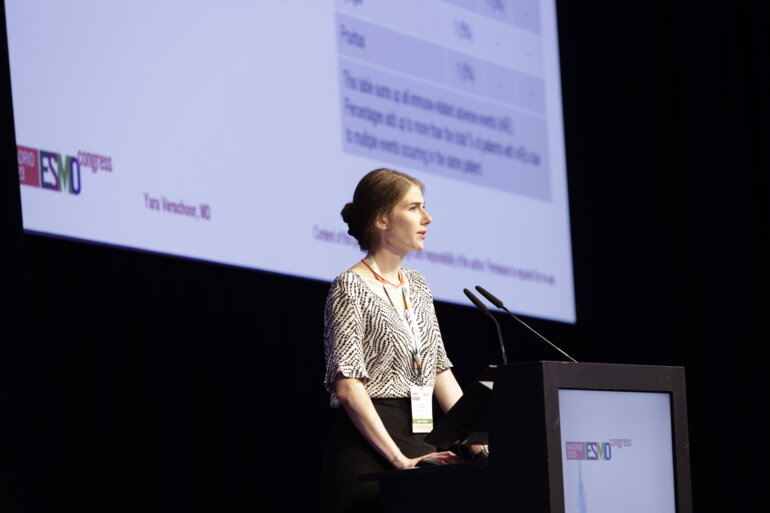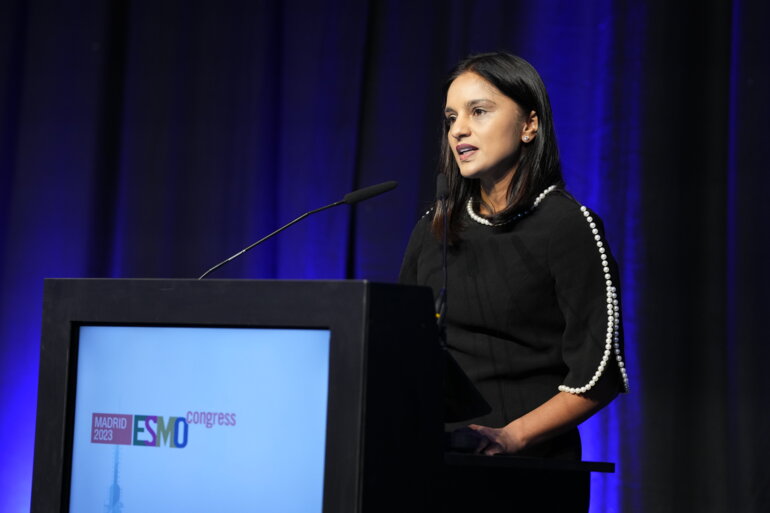
Combination therapies with immunotherapy and ADCs prolong overall survival in urothelial carcinoma
Positive outcomes in advanced or metastatic disease reported from EV-302/KEYNOTE-A39 and CheckMate 901 indicate an alternative to first-line chemotherapy for the first time

Neoadjuvant nivolumab plus relatlimab shows benefit in MMR-deficient colon cancers
In the NICHE-3 study, all patients achieved a pathological response

Advanced pancreatic cancer: is triple chemotherapy into question?
Results presented at ESMO Congress 2023 open-up an interesting debate on the use of currently recommended treatment regimens

Triplet therapy does not outperform doublet treatment first line in metastatic pancreatic cancer
Results from the JCOG1611-GENERATE trial fuel the debate around the preferred option in this setting

New treatment paradigms may offer advances in pancreatic cancer treatments
Neoadjuvant, perioperative, targeted and combined treatment approaches have shown potential benefit for patients with this aggressive disease, but further research is needed

Early-phase trials demonstrate new frontiers for ADCs in breast cancer
Encouraging preliminary results are reported with innovative antibody–drug conjugate designs, but underlying mechanisms of action still need to be described to improve efficacy and tolerability

Single-agent milademetan fails to improve outcomes in dedifferentiated liposarcomas
Disappointing results were reported from the phase III MANTRA trial, but biomarker-based approaches still offer hope for MDM2 inhibition in solid tumours

Novel immunotherapy-based treatment strategies offer benefits to patients with sarcoma
Results from four early-phase studies show that combining immune checkpoint inhibitors with other immunotherapies or with TKIs is a potentially efficacious strategy for the treatment of different diseases including GIST and vascular sarcomas

Tissue agnostic study shows activity of ADCs in solid tumours with HER2 activating mutations
In the DESTINY-PanTumour01 trial, promising response rates were seen with trastuzumab deruxtecan in heavily pre-treated patients with different cancer types

Disappointing results from immune checkpoint inhibition combined with androgen deprivation therapy in prostate cancer
Negative trials presented at the ESMO Congress 2023 suggest that a new treatment strategy may be required for patients with metastatic disease
